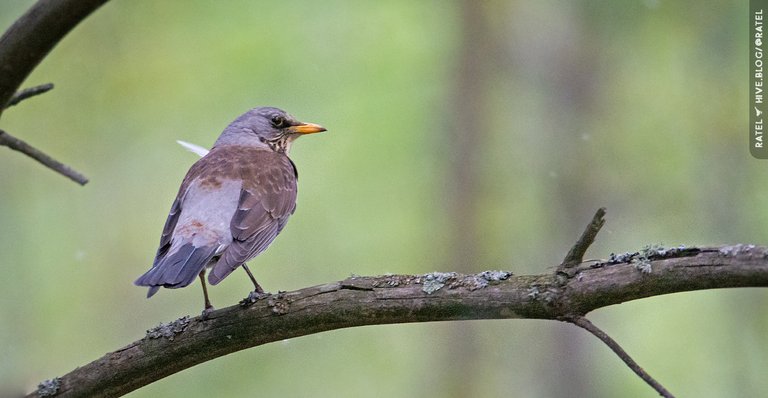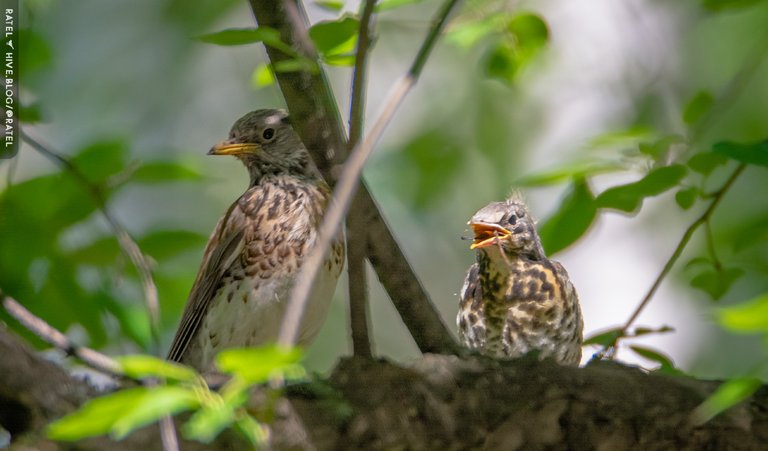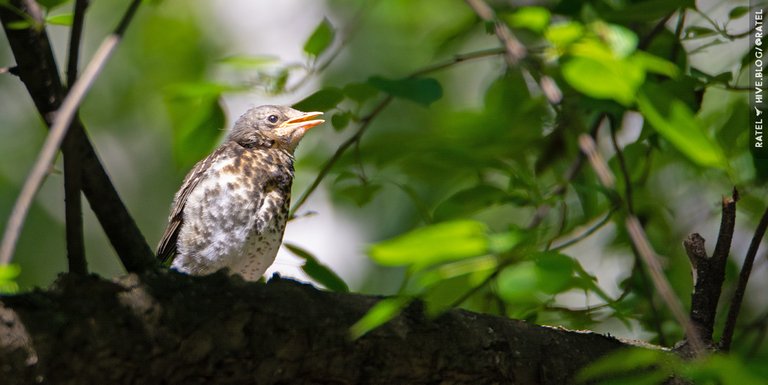
🦉 The fieldfare (Turdus pilaris)
- Turdus (lat) - Thrush
- pilaris the etymology is mysterious, although it is now believed that pilaris in later Latin means simply thrush (Jobling, 2017). However, since lat. "pilus" hair, pilare to remove hair, but pila ball, pilaris anything related to ball, and pilarius is a juggler (and at the same time, the Greek "trikhos" is hair, and "trikhas" is a thrush!), all this puzzling. Two assumptions arise. First: when the fieldfare in summer, how usually pulls earthworms out of the ground, this can be associated with hair removal (pilare). Second: when in autumn and winter the fieldberry picks rowan berries and throws them up, swallows, it may resemble a juggler (pilarius).

These birds arrive in early spring, in the first wave. And this is despite the fact that this species, in principle, is not migratory, it’s just too cold for them in my region, so they move to where it’s warmer. However, if the winter is warm, then they can be found in winter, which happened to me a couple of times.
So, in early spring you can see them in forests and parks where they are already spending the mating season. Males constantly scream and court females. At this time, these birds are quite bold and you can even get closer to them.

After the mating season, in the summer, the birds are very, very secretive and shy. It is very rare to hear their voices. and even more so to see them. But you can only see them when their children grow up and fly out of the nest. At this time, parents are always on the alert and protect their children by attacking enemies.

| Camera | Lens |
|---|---|
| Nikon D5200 | Tamron SP AF 150-600mm f/5-6.3 Di VC USD |
good bird photography.
а вы по голосам можете их различать всех?
Конечно, большинство птиц могу. Но есть такие птицы у которых голоса практически идентичные. с такими вот бывают проблемы.